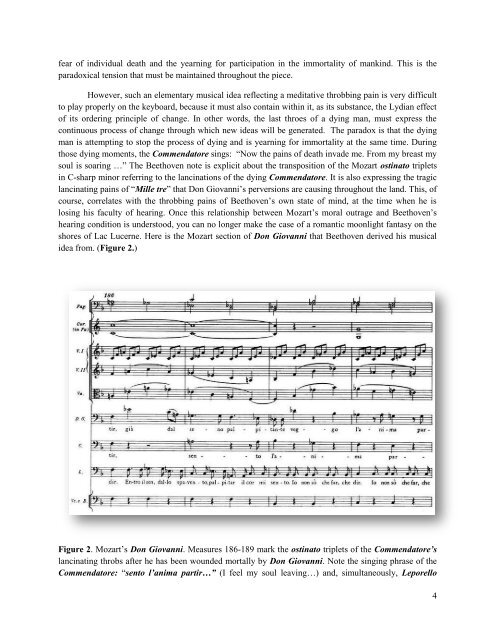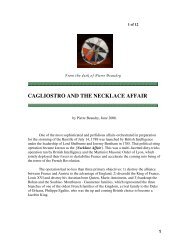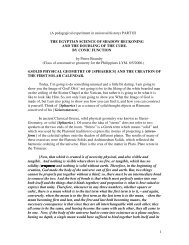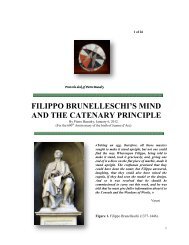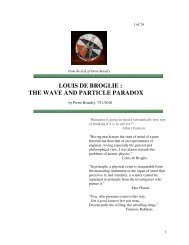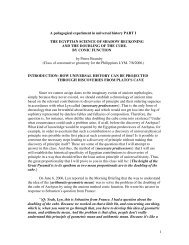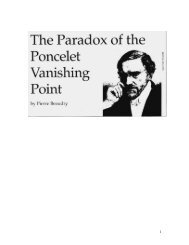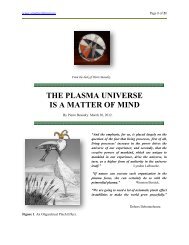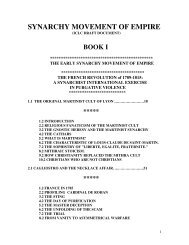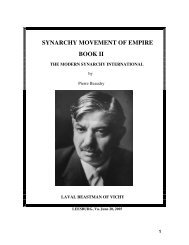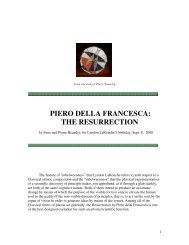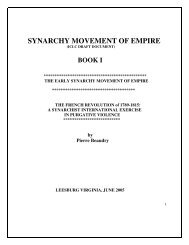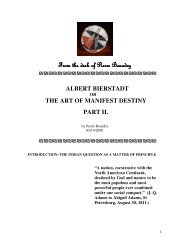BEETHOVEN SONATA OPUS 27, NO. 2.pdf - Pierre Beaudry's ...
BEETHOVEN SONATA OPUS 27, NO. 2.pdf - Pierre Beaudry's ...
BEETHOVEN SONATA OPUS 27, NO. 2.pdf - Pierre Beaudry's ...
Create successful ePaper yourself
Turn your PDF publications into a flip-book with our unique Google optimized e-Paper software.
fear of individual death and the yearning for participation in the immortality of mankind. This is the<br />
paradoxical tension that must be maintained throughout the piece.<br />
However, such an elementary musical idea reflecting a meditative throbbing pain is very difficult<br />
to play properly on the keyboard, because it must also contain within it, as its substance, the Lydian effect<br />
of its ordering principle of change. In other words, the last throes of a dying man, must express the<br />
continuous process of change through which new ideas will be generated. The paradox is that the dying<br />
man is attempting to stop the process of dying and is yearning for immortality at the same time. During<br />
those dying moments, the Commendatore sings: “Now the pains of death invade me. From my breast my<br />
soul is soaring …” The Beethoven note is explicit about the transposition of the Mozart ostinato triplets<br />
in C-sharp minor referring to the lancinations of the dying Commendatore. It is also expressing the tragic<br />
lancinating pains of “Mille tre” that Don Giovanni’s perversions are causing throughout the land. This, of<br />
course, correlates with the throbbing pains of Beethoven’s own state of mind, at the time when he is<br />
losing his faculty of hearing. Once this relationship between Mozart’s moral outrage and Beethoven’s<br />
hearing condition is understood, you can no longer make the case of a romantic moonlight fantasy on the<br />
shores of Lac Lucerne. Here is the Mozart section of Don Giovanni that Beethoven derived his musical<br />
idea from. (Figure 2.)<br />
Figure 2. Mozart’s Don Giovanni. Measures 186-189 mark the ostinato triplets of the Commendatore’s<br />
lancinating throbs after he has been wounded mortally by Don Giovanni. Note the singing phrase of the<br />
Commendatore: “sento l’anima partir…” (I feel my soul leaving…) and, simultaneously, Leporello<br />
4


